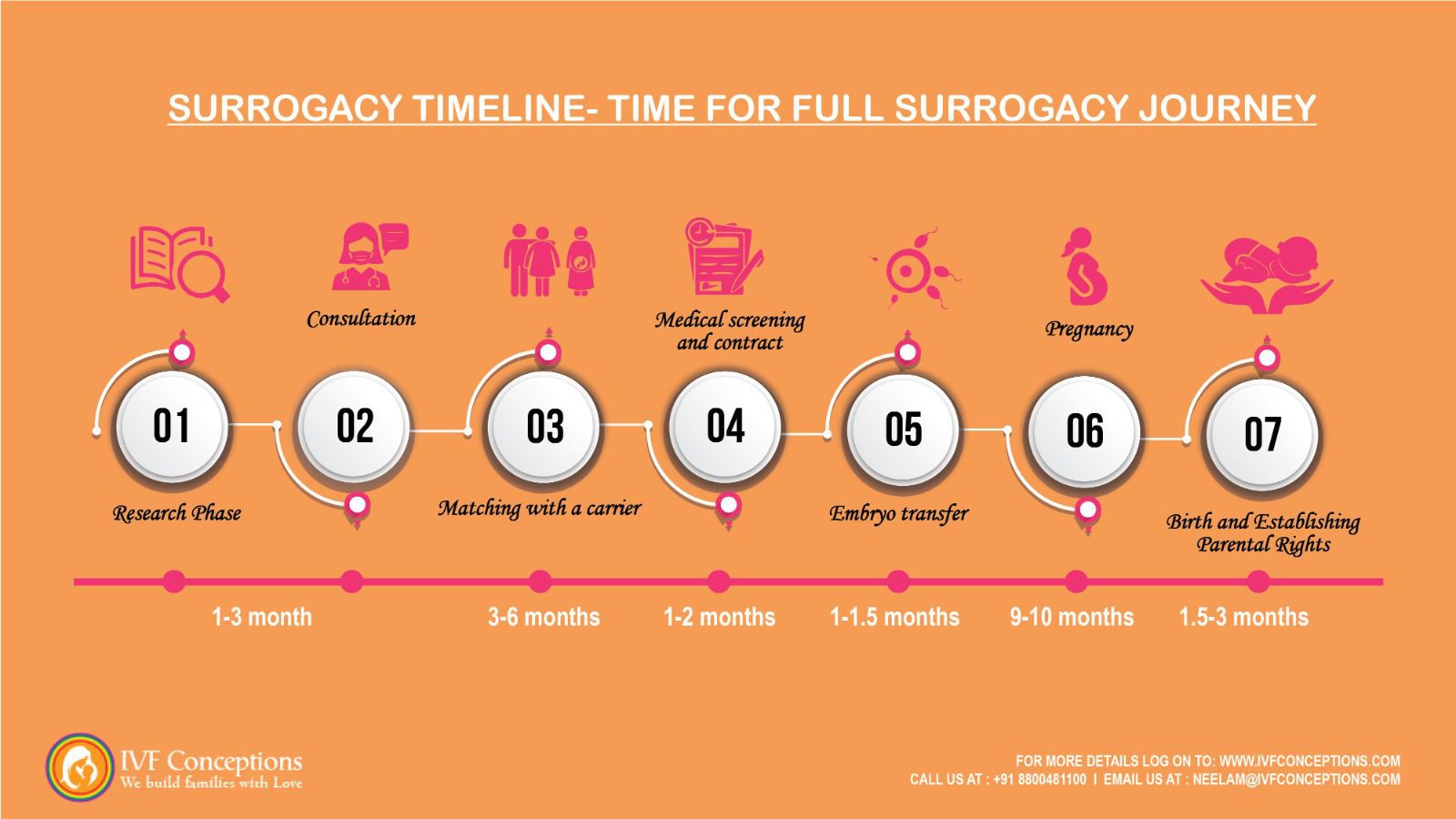Surrogacy for Gay Parents| Surrogacy for LGBT Family

Surrogacy has become a viable and fulfilling option for gay couples who wish to start a family. With advancements in reproductive technology and evolving societal norms, surrogacy offers same-sex male couples the opportunity to have a biological connection with their children.
This comprehensive guide will delve into the process of surrogacy for gay parents, the legal considerations, costs, and the advantages and challenges faced along the way.
Get in touch for a Free Surrogacy Consultancy:
📲 +91-8800481100 ( WhatsApp, Line, Viber)
 Understanding Surrogacy for Gay: Definitions and Options
Understanding Surrogacy for Gay: Definitions and Options
What is Surrogacy for Gay Parents?
Surrogacy for gay parents is when a same-sex male couple (or a single gay man) uses a surrogate mother to carry and give birth to their child. This can be achieved through gestational surrogacy, where the surrogate has no genetic relationship to the baby, as the embryo is created using the sperm from one of the partners and an egg donor.
Why Choose Surrogacy?
Surrogacy provides a solution for gay couples to build their families while maintaining a biological link with their children. Here are some key reasons why gay couples opt for surrogacy:
- Biological Connection: One or both partners can be biologically related to the child.
- Greater Control: Gay couples can select their egg donor and surrogate, giving them more control over the process.
- Legal Parentage: Surrogacy offers a clear path to legal parenthood, particularly in regions with supportive legal frameworks.
Types of Surrogacy Available for Gay Parents
- Gestational Surrogacy: In gestational surrogacy, an embryo is created through IVF using an egg from a donor and sperm from one or both of the intended fathers. The surrogate carries the child but has no genetic ties to the baby.
- Traditional Surrogacy: Traditional surrogacy is less common for gay couples, as it involves using the surrogate’s egg, making her genetically related to the child. In most cases, gay couples prefer gestational surrogacy to avoid legal complications.

The Surrogacy Process for Gay Couples
The surrogacy journey involves several stages, all of which require thorough planning, legal preparation, and financial investment. Below is a step-by-step breakdown of the process:
1. Choosing an Egg Donor
Gay couples need to select an egg donor to fertilize the sperm from one of the partners. Egg donors can be chosen through fertility clinics or agencies, and the donor can be anonymous or known.
2. Finding a Surrogate
Surrogates are typically found through surrogacy agencies or via independent arrangements. The surrogate carries the embryo created from the donor’s egg and the intended father’s sperm. Surrogates must undergo medical and psychological screening to ensure they are fit for the role.
3. Legal Contracts
Once a surrogate is chosen, a legal contract must be drawn up to protect the rights of both the surrogate and the intended parents. This contract outlines compensation, parental rights, and any potential medical issues. It’s crucial to work with a lawyer experienced in surrogacy law to ensure legal protections are in place.
4. IVF and Embryo Transfer
After the legal agreements are completed, IVF treatment begins. The fertilized embryo is transferred to the surrogate’s uterus, and she begins the pregnancy journey. Regular medical check-ups ensure the health of the surrogate and the baby.
5. Birth and Parental Rights
Once the baby is born, the intended parents assume their legal parental rights as per the contract. In many cases, the birth certificate will reflect the names of both intended parents, depending on the local laws.
Timeline for gay surrogacy:
The surrogacy process takes 18 months to 24 months depending upon the individual circumstances
Outlines the surrogacy process timeline for intended parents:
|
Stage |
Description of Stage |
Duration |
|
Research Phase |
Explore family building options and decide on surrogacy. |
Personal timeframe |
|
Consultation and Application |
Choose a surrogacy agency, sign agreement, and start embryo creation (if needed). |
1-3 Months |
|
Matching |
Agency finds and presents potential gestational carriers. Meet and decide on a match. |
3-6 Months |
|
Medical Screening and Contracts |
Carrier undergoes medical and psychological screening. Sign surrogacy contract. |
1-2 Months |
|
Embryo Transfer |
Prepare for embryo transfer. Success may take multiple attempts. |
1-1.5 Months |
|
Pregnancy |
Gestational carrier’s pregnancy, approximately 40 weeks. |
9-10 Months |
|
Birth and Postpartum |
Baby’s birth, establish parental rights, and postpartum period. |
1.5-3 Months |
Please keep in mind that the durations mentioned in the table are approximate and can vary depending on individual circumstances and other factors. Always consult with a reputable surrogacy agency or professional to get personalized guidance throughout the surrogacy journey.
More resources on gay dads becoming parents:
All you need to know about gay surrogacy?
How much does gay surrogacy cost?
Best country for gay surrogacy?
Top 4 cheapest countries for surrogacy

Legal Considerations for Gay Surrogacy
The legal landscape for surrogacy varies widely between countries and even between states in the U.S. For gay parents, the legalities surrounding surrogacy can be more complex due to differing laws on same-sex parenthood. It is essential to work with a legal expert who specializes in surrogacy to navigate the following:
- Parental Rights: Ensure that both partners can be legally recognized as the child’s parents on the birth certificate.
- Citizenship Laws: If pursuing international surrogacy, ensure that your child can obtain citizenship in your home country.
- Legal Contracts: A comprehensive surrogacy agreement should cover compensation, medical expenses, and parental rights, as well as address potential disputes.
Countries with Gay-Friendly Surrogacy Laws
- United States: Certain states like California, Oregon, and Nevada are surrogacy-friendly for gay couples.
- Canada: Surrogacy is legal, but only altruistic surrogacy is permitted.
- Colombia: Surrogacy is permitted, and international couples are welcome.
- Mexico: Some regions allow surrogacy for gay couples, but laws vary by state.
- Argentina: Surrogacy is permitted, and international couples are welcome.

Costs of Surrogacy for Gay Couples
Surrogacy can be a costly journey, especially for gay couples who require both an egg donor and a surrogate. Below is an itemized breakdown of potential costs involved in surrogacy for gay couples:
| Cost Component | Estimated Cost |
| Agency Fees | $20,000 – $40,000 |
| Egg Donor Compensation | $8,000 – $15,000 |
| Surrogate Compensation | $40,000 – $60,000 |
| Medical/IVF Costs | $30,000 – $50,000 |
| Legal Fees | $10,000 – $15,000 |
| Insurance (for Surrogate) | $10,000 – $30,000 |
| Total Estimated Costs | $120,000 – $150,000+ |
The final cost of surrogacy will vary based on location, the complexity of the IVF process, and the agency fees involved.
Challenges of Surrogacy for Gay Couples
While surrogacy offers an incredible opportunity for gay couples to have a biological child, it does come with its share of challenges:
- Legal Complexities: Laws governing surrogacy can be complicated, especially for same-sex couples, and can vary widely depending on the country or state.
- High Costs: Surrogacy, especially international surrogacy, can be financially demanding. Couples must prepare for significant expenses.
- Emotional Toll: The surrogacy process can be emotionally taxing due to the legal, medical, and financial aspects, as well as the waiting time involved.
Advantages of Surrogacy for Gay Couples
- Biological Connection: Surrogacy allows one or both intended fathers to have a biological link to the child.
- Parental Control: Gay couples have control over the choice of egg donor and surrogate, allowing them to feel involved throughout the pregnancy.
- Legal Protections: Surrogacy contracts provide legal protection, ensuring that intended parents can secure their rights to the child.
Conclusion
Surrogacy for gay couples has become a viable and fulfilling way to build a family. With the right legal support, careful planning, and a trusted surrogacy agency, the dream of becoming a parent can become a reality.
While there are challenges, the ability to create a biological connection with their child and experience the joys of parenthood makes surrogacy a rewarding option for many gay couples.
If you’d like to learn more about IVF, Egg Donation, or gay surrogacy services globally, check out the rest of our website: IVF Conceptions. We offer legally secure and affordable surrogacy consulting services for FREE.
Get in touch for a Free Surrogacy Consultancy:
📲 +91-8800481100 ( WhatsApp, Line, Viber)
Related surrogacy Costs guides:
What is the average surrogacy cost?
How much does surrogacy cost in Ukraine?
How much does surrogacy cost in Georgia?
How much does surrogacy cost in India?
What is the Surrogacy Cost in Colombia?
What is Surrogacy cost in Mexico?
What is surrogacy cost with family members?

FAQs for gay-friendly surrogacy agency
1. What is gay surrogacy?
- Gay surrogacy is when a same-sex male couple (or a single gay man) uses a surrogate mother to carry and deliver a child. It allows gay men to have biological children with the help of assisted reproductive technology (ART), typically through gestational surrogacy.
2. How does gestational surrogacy work for gay couples?
- In gestational surrogacy, an embryo is created using the sperm from one of the intended fathers (or a sperm donor) and an egg from an egg donor. The embryo is then transferred to the surrogate’s uterus. The surrogate carries the baby, but she is not genetically related to the child.
3. Can gay couples use their own sperm?
- Yes. Gay couples can use sperm from one or both partners. Some couples may decide to fertilize multiple eggs with each partner’s sperm to potentially have biological children from both partners.
4. Do gay couples need an egg donor for surrogacy?
- Yes. In gay surrogacy, an egg donor is required to provide the egg for fertilization, as neither of the intended fathers can contribute an egg.
5. Is surrogacy legal for gay couples in all countries?
- Surrogacy laws vary widely by country and state. Some countries and states permit surrogacy for gay couples, while others may restrict or prohibit it. It is essential to consult with legal experts familiar with local surrogacy laws before proceeding.
6. What are the costs associated with gay surrogacy?
- The cost of surrogacy for gay couples can range from $100,000 to $150,000 or more, depending on factors such as agency fees, surrogate compensation, medical costs, legal fees, and international surrogacy expenses.
7. Can both partners be listed as legal parents of the child?
- In many jurisdictions, both partners can be listed as legal parents on the child’s birth certificate, but this depends on the laws of the country or state where the surrogacy takes place. It’s important to work with surrogacy lawyers to establish both partners’ parental rights.
8. How do we find a surrogate as a gay couple?
- Gay couples can find surrogates through surrogacy agencies, which specialize in matching intended parents with surrogates, or through independent arrangements. Some may also use a known surrogate, such as a friend or relative.
9. What are the legal considerations for gay surrogacy?
- Legal considerations include drafting surrogacy contracts, establishing parental rights, and ensuring that all parties comply with the surrogacy laws in their region. Gay couples should work with experienced surrogacy lawyers to protect their rights and those of the surrogate.
10. What are the emotional challenges of surrogacy for gay couples?
- While surrogacy can be a rewarding experience, it can also be emotionally challenging due to the complexities of the process, potential legal hurdles, and the emotional journey of waiting for the baby to arrive. Proper support from surrogacy agencies, counselors, and legal teams is essential.
11. Is gay surrogacy allowed in the U.S.?
- Surrogacy laws vary by state in the U.S. Some states are surrogacy-friendly and allow gay surrogacy, while others may have restrictions or legal hurdles. It’s crucial to research the legal framework of your chosen state before beginning the surrogacy process.
12. What happens if the surrogate changes her mind?
- In most cases, surrogacy contracts legally bind the surrogate to return the baby to the intended parents after birth. However, this depends on the surrogacy laws in the country or state. Proper legal safeguards should be in place to minimize the risk of complications.
13. Can we use a family member or friend as a surrogate?
- Yes, many gay couples choose to use a friend or family member as their surrogate. Known surrogacy can reduce costs and foster a close relationship during the pregnancy, but legal agreements are still necessary to protect all parties.
14. Can we pursue surrogacy internationally?
- Yes, international surrogacy is an option for many gay couples, but it comes with additional legal, financial, and logistical challenges. Popular surrogacy destinations include countries like the U.S., Mexico, Colombia, and Canada. Be aware that surrogacy laws differ globally, so thorough research is essential.
15. What are the advantages of surrogacy for gay couples?
- Surrogacy allows gay couples to have a biological child, control over the pregnancy process, and a personal connection to the surrogate. It’s also a safe and regulated process when done through an agency or with proper legal counsel.

 Understanding Surrogacy for Gay: Definitions and Options
Understanding Surrogacy for Gay: Definitions and Options
